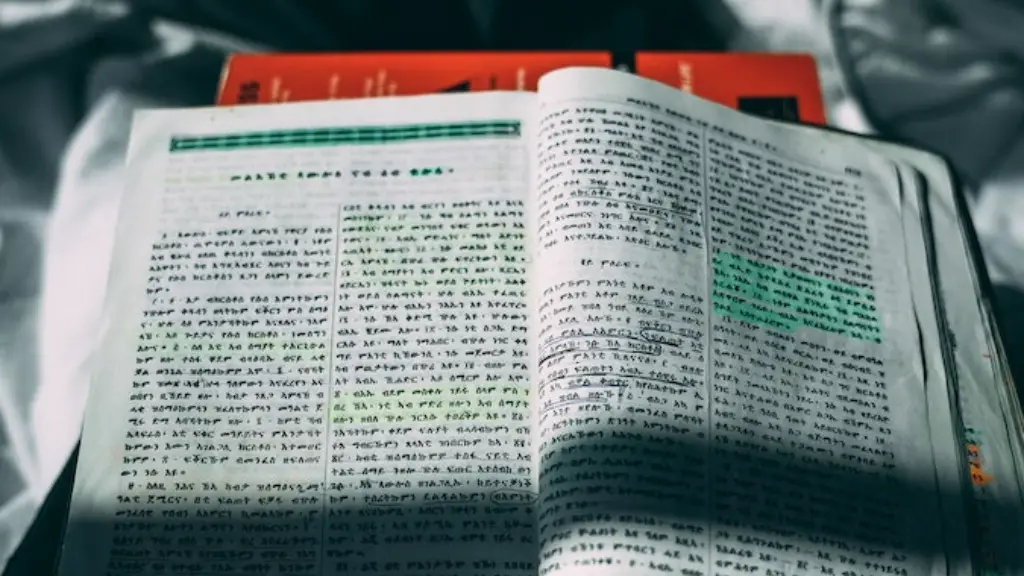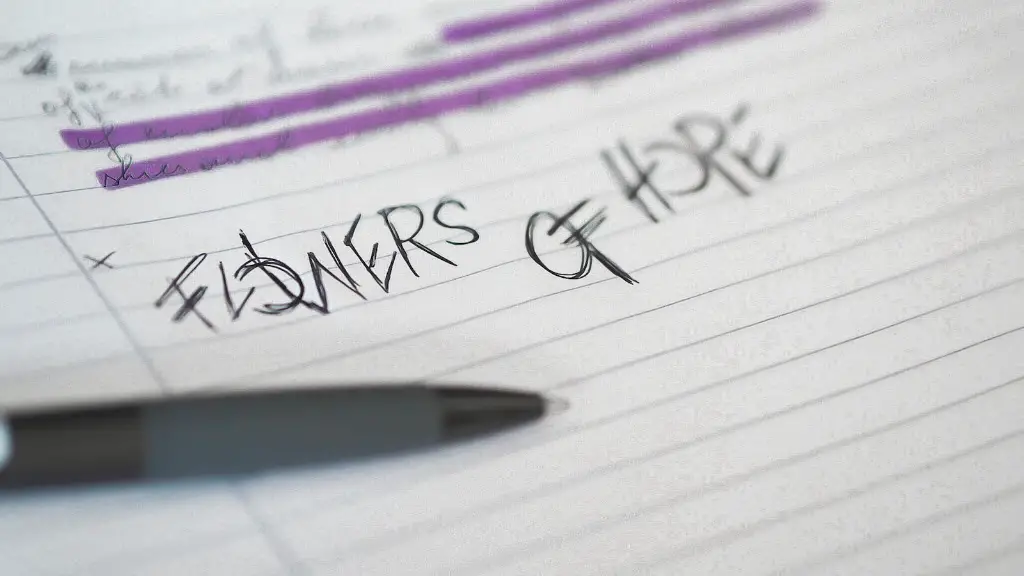What is Speaker in Poetry?
Speaker in poetry is a voluntary persona, or voice, assumed by the poet in the form of a character, in order to tell a story or express ideas. The speaker is not necessarily the poet himself, but rather can be any character, including an imaginary being, or an animate or inanimate object. In order to understand a poem, the reader must understand who is speaking and why. A speaker in poetry is an important part of how the poet communicates ideas, conveys moods, and establishes a tone, as it can directly influence how a poem is interpreted.
The speaker of a poem is the voice assumed by the poet. This voice is usually consistent throughout the poem. It can refer to a single line or even a single word of the poem’s narrative. A speaker can refer to any number of characters, forces, or objects that the poet uses to express ideas. The speaker is usually the voice of the poem’s narrative, but it can also be an individual, a dialogue between characters, a chorus, or even a machine. The speaker in a poem can be the poet himself, an imaginary being, or even an inanimate object.
The speaker in poetry serves a critical role in the poem. It is the means by which the poet communicates with the reader. A poem can only be deciphered if the reader has an understanding of who is speaking. The speaker in a poem establishes a tone and voice, aiding the reader in interpreting the meaning of a poem. It also allows the poet to create a persona or character to which the reader can relate or empathize. A readers interpretation of a poem will often be largely influenced by who is speaking.
The speaker in a poem can also be used to create emotion or evoke imagery. By using personification, for example, the poet can use an object or force of nature to give the poem a personal resonance. Similarly, the speaker can be used to develop a further understanding of a narrative. By using the character of the speaker, the poet can provide further details that would be left out by a impartial narrator. Through the development of the speaker, the poet can provide additional insights that can help the reader to interpret a poem.
In conclusion, the speaker in poetry plays an important role in how a poem is interpreted. The speaker serves as a vehicle for the poet to convey ideas, evoke emotions, and establish a tone and atmosphere. By understanding who is speaking in a poem, readers can gain a better understanding of the poem as a whole.
How does the speaker affect the poem’s tone and atmosphere?
The speaker in poetry has a significant impact on the tone and atmosphere of the poem. By assuming a persona the poet is able to give the poem its own personality and set the tone for the poem. The speaker is the means by which the poet can establish an emotional connection with the reader, setting the stage for further exploration of the poem’s themes. The speaker can create a mood that is in direct opposition or agreement with the subject matter. By varying the speaker’s tone, attitude, and diction, the poet can create a unique atmosphere.
The speaker also plays an important role in the interpretation of the poem. By understanding who is speaking and why, the reader can gain insight into the poem’s meaning. The speaker gives readers clues as to the poem’s narrative and enables them to empathize with the character’s emotion. By understanding the speaker, the reader can use the character’s emotion to interpret the poem’s theme and message.
The speaker can also be used to create tension. By assuming the voice of multiple characters or forces, the poet can bring about conflict, allowing for the exploration of themes such as man vs. nature, good vs. evil, or other opposing forces. This further adds to the emotional depth of the poem, intensifying its tone and atmosphere.
What other elements does the speaker bring to the poem?
The speaker not only brings a sense of personality to the poem, but can also add an element of surprise or mystery. By introducing characters or forces that are unexpected, the poet can pique the reader’s interest in the poem. By taking the reader on an imaginative journey, the speaker can create a deeper connection with the reader, aiding in the interpretation of the poem.
The speaker in poetry can also bring a sense of mythology to the poem. By assuming the role of a mythical being or force, the poet can explore themes that are not readily accessible in reality. This enables the poet to explore topics beyond the limits of ordinary experience, while still maintaining a sense of familiarity. By introducing the speaker as a mythical being, the poet can create a connection with the reader that is both mysterious and engaging.
The speaker of a poem can also add a sense of humor to the poem, allowing for a lighthearted interpretation of serious topics. By injecting a touch of humor into the poem, the poet can evoke laughter and bring levity to a complex subject. This can be done through the use of puns, whimsy, or irony, all of which can add an element of surprise and delight to the poem.
How do poets use the speaker to explore themes?
The speaker in poetry provides an opportunity for the poet to explore difficult and abstract themes. Poets often use the unique perspective of the speaker to bring a fresh perspective to a poem’s subject matter. By assuming the role of a character or force, the poet can create a unique viewpoint that can shed light on the subject of the poem. By introducing an unbiased or unexpected opinion on a difficult subject, the poet can explore ideas that may have been overlooked.
The speaker can also be used to explore moral and ethical themes. By assuming the role of an individual or force, the poet can explore the ethics of a certain subject through the eyes of the character. This allows for a more thoughtful exploration of the subject matter, enabling readers to gain a deeper understanding of the poem’s message.
The speaker also serves as a means for the poet to explore the psychological and emotional facets of a subject. By assuming the voice of the narrator, the poet can delve deeper into the psychology of a character or situation. By exploring the inner workings of a character, the poet can explore complex emotions such as love, guilt, regret, and more, allowing for a contemplation beyond the scope of ordinary experience.
Can the speaker be used to provoke thought in the reader?
The speaker in poetry can be used to provoke thought in the reader. By introducing unexpected characters or forces, the poet can make the reader contemplate deep and difficult topics. By exploring a topic from a different perspective, the poet can spur the reader’s imagination and ultimately lead to a greater understanding of the poem’s themes.
The speaker can also be used to make the reader reflect on their own beliefs and experiences. By exploring a subject matter through the eyes of another, the poet can create a dialogue within the reader, allowing them to reflect on the experience of the poem’s speaker. This can ultimately lead to an increased understanding and appreciation of the poem.
The speaker in poetry can also be used to make the reader question their own beliefs and values. By challenging accepted beliefs and values, the poet can prompt the reader to question their preconceived notions. This can cause the reader to reassess their own thoughts and ultimately develop a more well-rounded perspective of the poem’s subject matter.
What is the purpose of the speaker in poetry?
The purpose of a speaker in poetry is to create a narrative voice and establish a dialogue between the poet and the reader. By assuming the voice of a character or force, the poet can provide insight into the poem’s subject matter and ultimately spark discussion about difficult topics. Through a speaker, the poet can explore themes such as love, guilt, regret, and explore the depths of the human psyche.
The speaker can also be used to evoke emotion in the reader and bring a sense of empathy to the poem’s subject. By understanding the trials and tribulations of the narrator, the reader can gain a connection with the poem that exceeds the boundaries of the page. This can aid in the interpretation of the poem, ultimately leading to a deeper understanding of the poem’s themes.
The speaker in poetry serves an invaluable purpose in the poem. The amalgamation of the poet’s own voice, along with the voices of the characters, forces, or objects, creates a unique and engaging narrative. By understanding the speakers and their roles in the poem, the reader can gain a deeper understanding of the poem as a whole.





